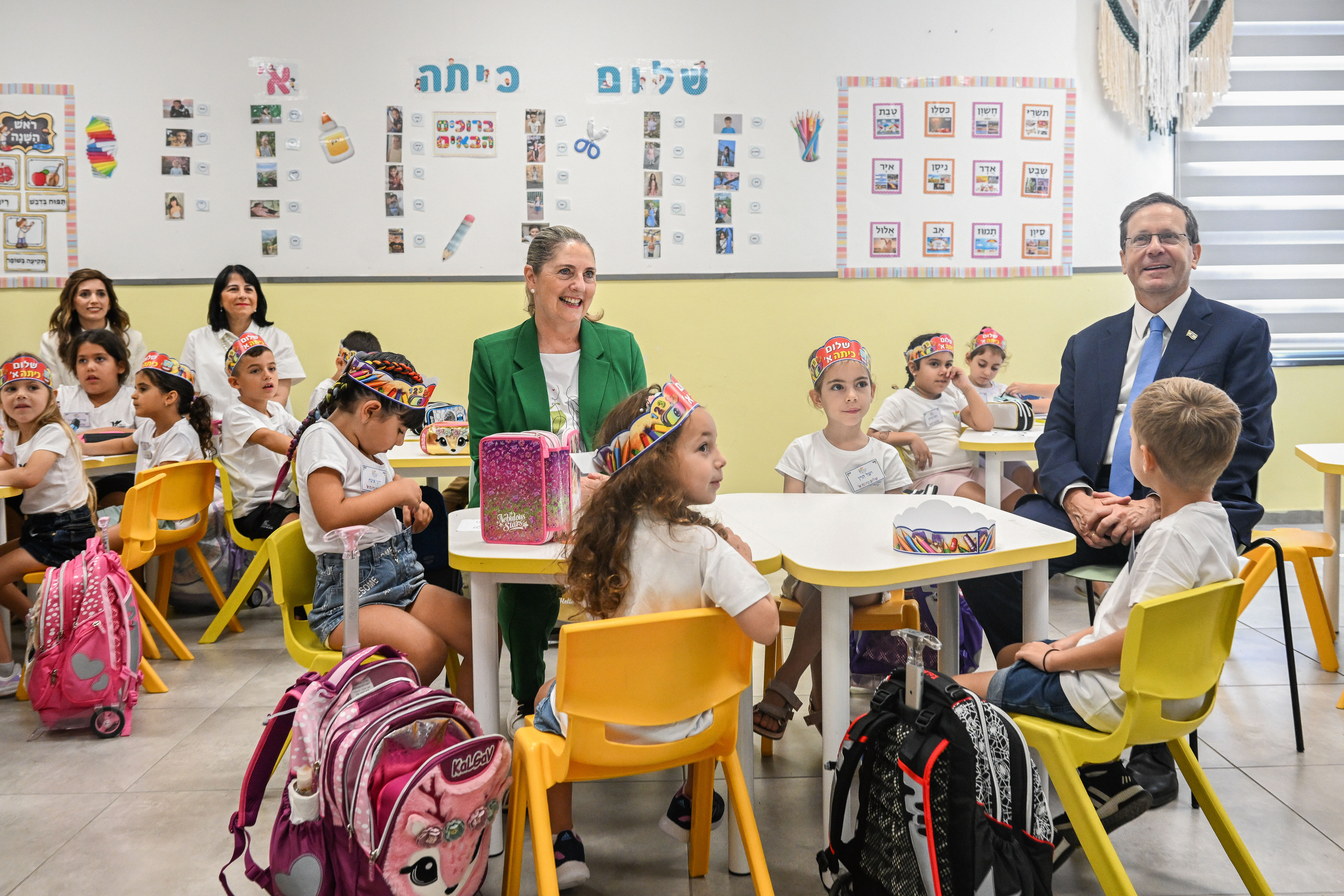Without Education for Democracy, There Can Be No Democracy
A special project for the start of the 2023–2024 school year
The undermining of democratic rule in Israel over the last year has included a series of legislative and budgeting steps that have dealt a heavy blow to the education system. Here, the staff of IDI’s Education Policy Program examine these steps from a local and international perspective, referring also to public opinion and to the consequences of these policies for democracy in the future. This survey was conducted at the end of July 2023 by IDI's Education Policy Program, in partnership with the IDI Viterbi Family Center for Public Opinion and Policy Research.

Flash90
The start of the 2023–2024 school year arrives against the backdrop of an unprecedented crisis in Israeli society. The 37th government of Israel is pushing forward rapid changes in all areas, while the protests against it are focusing only on changes to the judicial system. The undermining of democratic rule in Israel reflects the extent of the division and polarization in Israeli society, while at the same time, there has been an awakening among large swathes of the public who had previously been uninvolved in such issues and have become active participants in civil action, including in the field of education. Israel’s education system has been embroiled in crisis for years now, and education professionals have also been affected by the stormy events of recent months in the country.
Ahead of the new school year, the staff of IDI’s Education Policy Program present a special project that includes a public opinion survey on education for democracy at the current time, a comparative review of the roles of teachers in democratic societies, a summary of the controversial legislation on education passed in the first session of the 25th Knesset, and research findings from the Program which show how the Israeli education system has laid the foundations for civic awareness in a democratic society ever since the establishment of the State of Israel.
Select Findings
First, we asked respondents whether they agree or disagree with the statement that one of the roles held by teachers in schools is to educate toward democracy.
Do you agree or disagree that that one of the roles held by teachers in schools is to educate for democracy? (total sample; %)

The responses were consistent and almost identical across both the Arab sample (agree, 74.5%; disagree, 20%) and the Jewish sample (agree, 73%; disagree, 21%). It appears that under the current circumstances, it is understood by a large majority of the Israeli public that one of the roles of teachers in schools is indeed to educate toward democracy. However, a breakdown of the responses in the Jewish sample by religiosity reveals a more complex picture.
Do you agree or disagree that that one of the roles held by teachers in schools is to educate for democracy? (Jewish sample, by religiosity; %)

As the above figure shows, while there is a broad consensus among most of the religious groups that education for democracy is one of the responsibilities held by teachers, the level of agreement with this notion is substantially higher among those who define themselves as secular (85%), and much lower among those who define themselves as Haredi (46%).
Breaking down the responses by political alignment (among Jews) reveals larger differences: The level of agreement varies strongly between those who voted for one of the opposition parties at the last election (90%) and those who voted for one of the coalition parties (61%), as shown in the figure below.
Do you agree or disagree that that one of the roles held by teachers in schools is to educate for democracy? (total sample, by vote at the last elections and by political orientation; %)

Following this question, and ahead of the new school year, we asked the respondents about whether schools should hold discussions about the government’s judicial reforms and their implications.
Do you agree or disagree that it is important that schools hold discussions about the judicial reforms and their implications, in which the views of the different sides are presented? (total sample and Jewish and Arab samples; %)

In contrast to the very broad consensus that in general, one of the roles held by teachers is to educate toward democracy, this question addresses an example of a specific practice—discussing the government’s judicial reforms and their implications. Here, the respondents are still largely in favor, but to a lesser extent: In the total sample, 60% agree that discussions should be held in schools about the judicial reforms and their implications. In the Arab sample, on the other hand, levels of support are higher, and are similar to those regarding the role of teachers in educating toward democracy, with 70% of respondents agreeing that it is important that discussions about the judicial reforms and their implications be held in schools.
-
This survey was conducted via the internet and by telephone (to include groups that are under-represented on the internet) between July 30 and August 1, 2023, with 615 men and women interviewed in Hebrew and 150 in Arabic, constituting a nationally representative sample of the adult population in Israel aged 18 and over. The maximum sampling error was ±3.55% at a confidence level of 95%.
